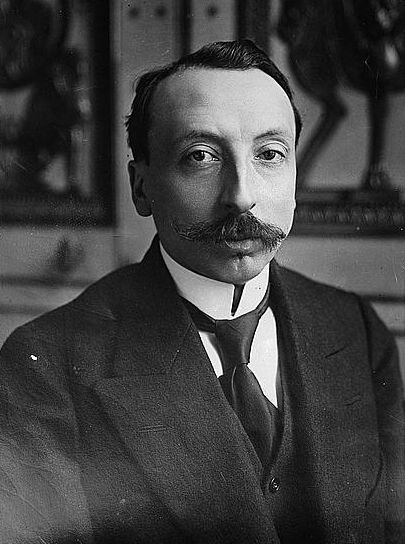 |
| Léon Bérard. Not a fan of Esperanto |
The article goes on to quote one of those “leading French educators,” Léon Bérard, the minister of education. Bérard was a prominent opponent of Esperanto, not only banning it in the public schools of France, but also was one of the key figures in causing the League of Nations to reject a resolution in favor of Esperanto. During World War II, he was the Ambassador to the Holy See from the collaborationist Vichy government. The Nazis established their own ban on Esperanto (among other things, including Braille) in 1940. The Nazis sought to wipe out Esperanto, not just ban it from their mails though.
Léon Bérard didn't want to go that far, at least probably not. His goal was simply to push back against Esperanto as a subject in the schools.
French Schools for EsperantoI think he was claiming that the Esperanto movement wanted to replace national languages, which is not actually the case. I’m not sure what languages count as “enemy languages.” Whose enemy?
Paris, July 15.—Esperanto has been barred from French universities. The language, favored by a great many French societies, chambers of commerce and similar organizations, has lost caste with leading French educators because, they declare, it is one of the favorite mediums for spreading Communistic propaganda.
Leon Berard, minister of education, says there is no place for an international artificial tongue in French educational institutions, which ought to devote themselves to teaching national cultural languages. Esperanto, he said in his dictum, placing a ban on it, "seeks to eliminate any reason for international culture and development of children’s minds, and has become an instrument of systematic internationalization of enemy languages and all original thought to express national development.
In any case, Bérard was an ardent foe of Esperanto and helped thwart the hopes of the Esperantists in the 1920s.
The headline is an odd one, because under Bérard's decree, there was no Esperanto in French schools. A better headline would have been "No Esperanto for French Schools."
The phrase "spreading Communistic propaganda" sort of leaps out, and I doubt I can read it through pre-Cold War eyes. Esperanto's association with anarchist movements probably caused some to look at it askance. On the other hand, Esperanto was also embraced by Christian temperance organizations only a few decades earlier.
No comments:
Post a Comment